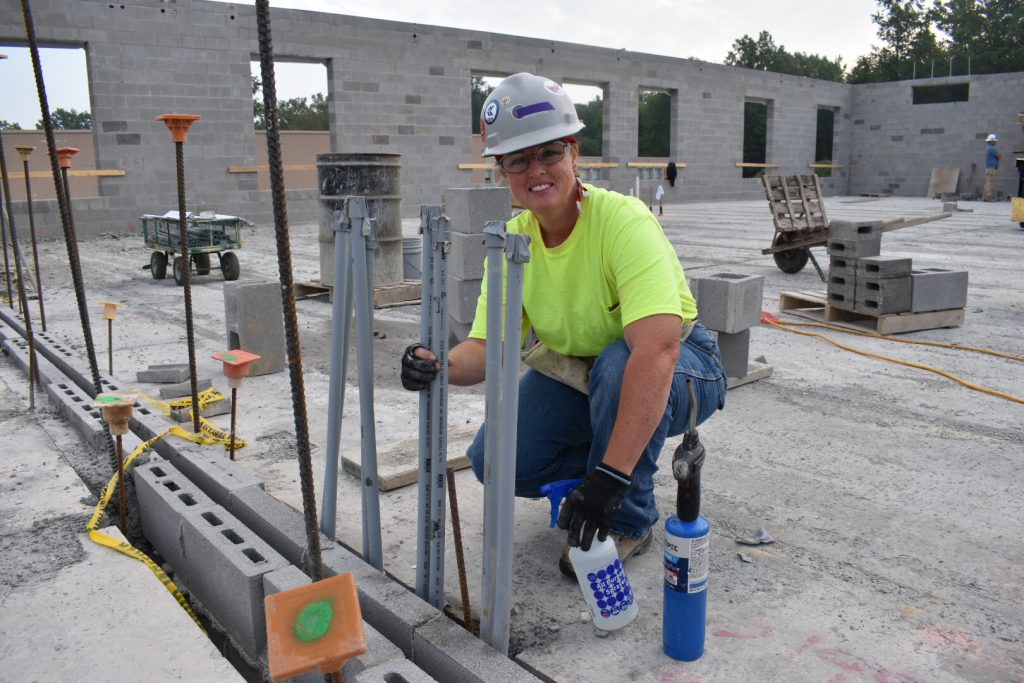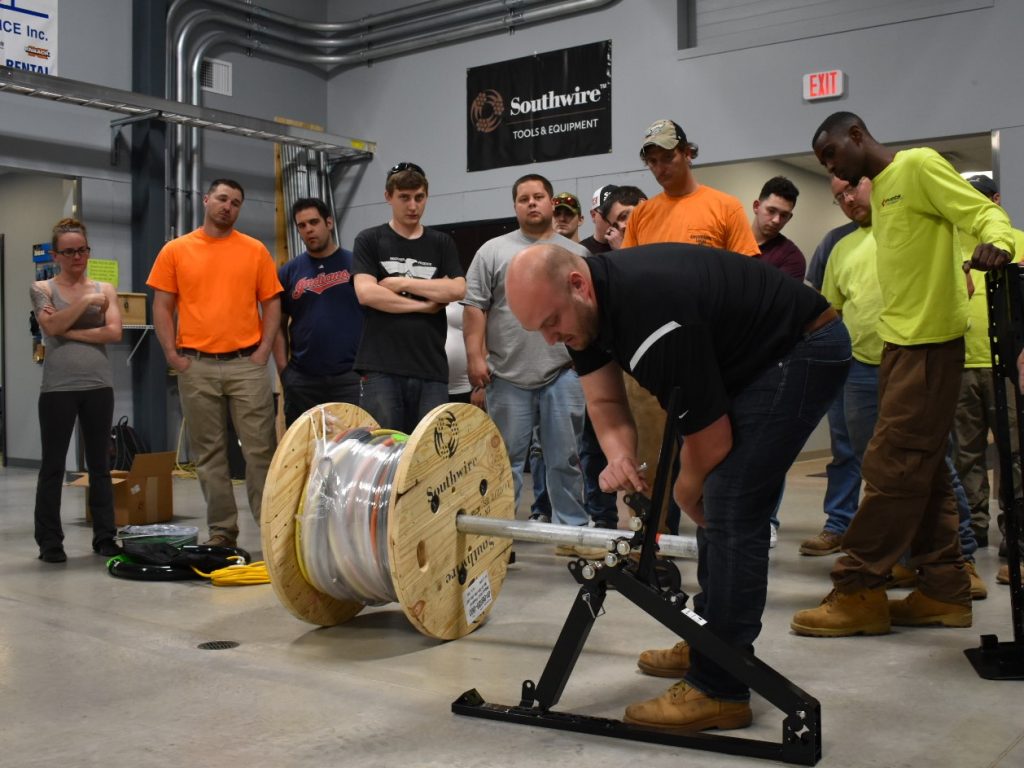[Following is an updated version of one of our most popular blog posts. This was originally published in 2016 but has been revised to reflect current salary information.]
Help Wanted: Local electrical contractors seek candidates 18 years or older with a driver’s license, high school diploma (or GED) and basic algebra and reading comprehension skills to train to become union electricians.
Starting pay at the conclusion of an accredited apprentice program can exceed $50,000 a year. No experience needed. Will train the right candidate. Applications taken year-round.
Sounds pretty good, right?

Electrician apprentices perform on-the-job training on jobsites during the day and attend classes in the evenings.
Whether you are in high school considering your next step or already in college or the workforce and looking to make a switch … consider becoming a union electrician.
Experience not necessary. But strong work ethic is.
Yes, you heard that right, becoming a union electrician doesn’t take as much experience as you may think. In fact, the Warren JATC (electrician training center) lays it out pretty clear. Minimum requirements to apply include:
- Be at least 18 years of age (or 17 to apply)
- Be a high school graduate or have a GED; or, in lieu of either of those, have at least a two-year associate’s degree
- Provide a high school diploma and official transcript for high school and post-secondary education and training or an official copy of a GED certificate and transcripts, if applicable
- Possess a valid driver’s license
- Veterans must provide DD-214
- Meet minimum requirements after taking an aptitude test
From there, the top candidates are interviewed and eligible for placement in a 3-year residential or 5-year commercial electrician apprentice program. The number of openings each year is dependent on a number of factors, including outlook for available work.
What does an electrician apprentice do?
Apprentices are placed with local contractors for paid on-the-job training on jobsites during the day. They attend classroom training two to three evenings per week. They do not accrue debt form tuition costs. In fact, they immediately begin earning a competitive salary and benefits package that increases in value each year as they become more experienced.
According to the Warren JATC, electrical apprentices can expect to plan, assemble and install electrical apparatuses, equipment, fixtures and wiring used in electrical systems for maintenance, renovation and new construction projects.
Other tasks may include installation, connecting and troubleshooting of electrical machinery, control devices, industrial equipment, and signal communications systems.
Great pay and benefits
You’re going to work hard and use your brainpower as an electrician, and you’ll earn the pay and benefits to match!
According to the United States Bureau of Labor Statistics, as of May 2019 the mean annual wage for an electrician across the country is $56,180; a rise of close to $5,000 from 2015.
In Ohio, electricians can expect to make very close to the national average at $55,150.
Benefits packages, even during the apprenticeship, including a health coverage and a competitive pension plan.
Ready to apply?
Union electricians work with their hands, they solve problems, work well with other trades and use their brains as much as their wrenches. It’s a rewarding career field in an industry where technological advances happen seemingly by the day.

No experience is necessary to become a union electrician because we train the candidates with the aptitude and work ethic needed to become successful in this field.
It’s a trade that’s in demand both locally and nationally. Strong candidates can write their own ticket once they’re working in the trade.
Many get satisfaction working in the field on jobsites for years and years. Others go on to earn college degrees and become engineers. Some pursue roles as estimators, project managers, foremen, contractors or union leadership positions.
Nonetheless it all starts with an apprentice program. Follow these links to more information and online applications through the Warren or Youngstown JATCs. We hope to hear from you.


